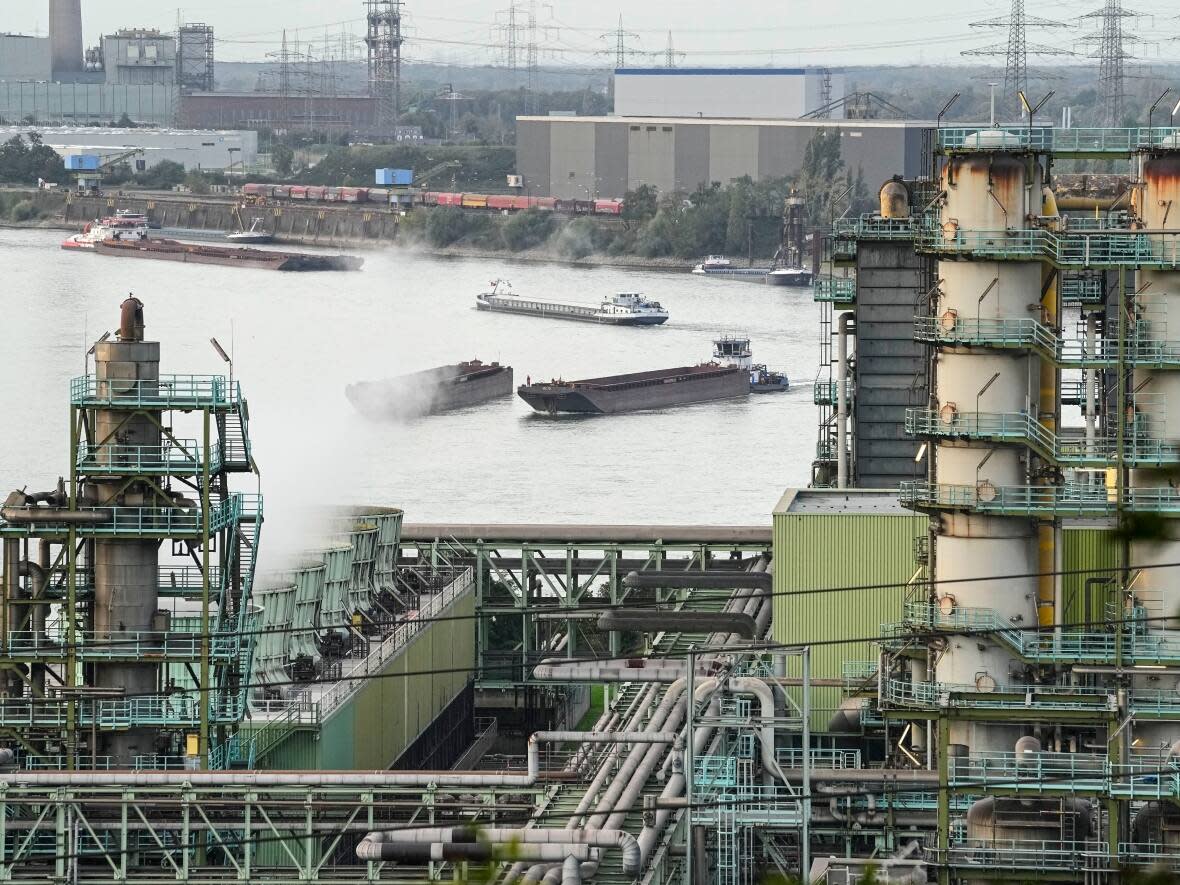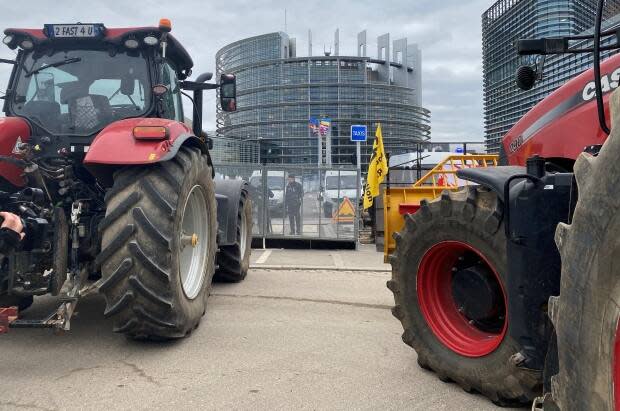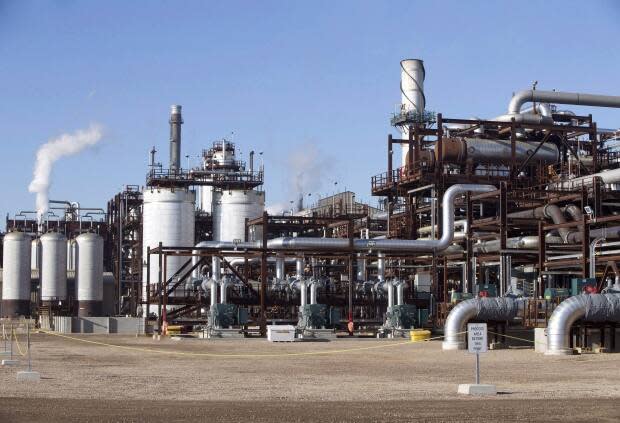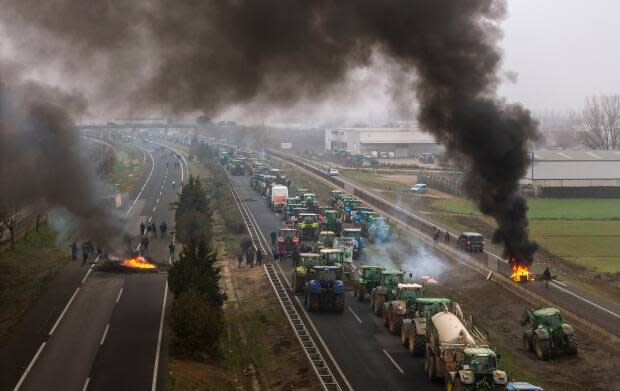Europe is planning huge emissions cuts by 2040. Here's how it could work (or not)

The European Commission wants to dramatically slash greenhouse emissions by 2040, an ambitious target likely to become a political flashpoint in the year ahead and a source of inspiration for environmentalists in Canada.
In an announcement Tuesday, the EU's executive branch proposed cutting economy-wide greenhouse gas emissions by 90 per cent from 1990 levels.
"The case for climate action is beyond doubt and requires planning now," Wopke Hoekstra, the EU's climate change commissioner, said in announcing the proposal.
"We've just lived through the hottest summer on record and we've seen for ourselves the devastation that climate change brings, sadly ever more in human lives."
Meeting the proposed targets would require transitions across multiple sectors, from energy to transportation. There are also questions about whether the targets are realistic.
Here's a closer look at what's involved, and what it could mean for Canada and the world.

What would this proposal entail?
In short, this proposal requires enormous changes. In 2022, the EU had reduced its greenhouse gas emissions by 33 per cent from 1990 levels.
Overall, the proposal would transform Europe's energy mix, with coal-fuelled power phased out and overall fossil fuel use reduced by 80 per cent and replaced with renewable, nuclear and hydrogen power.
The plan focused on building up European clean-tech industries as the EU moves away from fossil fuels.
It would also rely on carbon, capture and storage technologies (CCS) to further reduce the presence of carbon dioxide in the atmosphere.
As part of the plan, the EU says it would need to capture and store 280 million tonnes of carbon by 2040, and roughly 450 million tonnes by 2050. (To put into perspective, Canada's total emissions for 2021 was 670 million tonnes.)
Critics say CCS technology remains largely unproven at the scale required to meet these targets.
Emissions from the agricultural sector will also need to be reduced, the commission said.
But amid widespread farmer protests in recent weeks, a requirement for agriculture to cut non-CO2 emissions 30 per cent by 2040 was removed from the final draft, Reuters reported.
Is this a done deal?
Not quite. We are nearing the end of the term for the current European Commission, and this proposal figures to become a point of contention heading into elections this summer.
What actual legislation comes out of it will be decided by the new EU Commission and Parliament after elections in June.
Polls suggest a possible swing to the populist far-right, which could make passing such climate policies more difficult.
The reported concession to farmers did not satisfy many right-wing members of the EU's parliament, who argued the green targets would harm the economy.
"The farmers are revolting in Europe and the European Commission is coming with further unrealistic ambitions," said Alexandr Vondra, from the Eurosceptic European Conservatives and Reformists Group, criticizing what he called a drive to "force people to have a different lifestyle."
How do the targets stack up?
Many countries, including Canada, already have short-term targets for 2030 and longer-term, global targets of reaching net-zero emissions by 2050.
The recommendation is in line with the EU's commitments under the 2015 Paris Agreement, the commission said. The agreement included a target to reach net-zero emissions by 2050, in an attempt to limit warming to 1.5 C above pre-industrial levels and avoid the most devastating impacts of climate change.
Experts warn an extra half a degree of warming above that target (which we are already at risk of passing) would lead to more intense and frequent extremes of heat, heavy rainfall and drought, the report found.

Still, the proposal was met with disappointment by some environmental groups, who argued it doesn't go far enough.
Colin Roche, a climate and energy campaigner with Friends of the Earth Europe in Brussels, said the reliance on carbon, capture and storage technology to reduce the level of greenhouse gasses is unrealistic.
"Our major concern is that when it looks at the use of fossil fuels, it doesn't give us a pathway towards eliminating fossil fuels from our energy system," Roche said.
"Rich countries, like the European Union, need to do it much faster and unfortunately today's proposal doesn't get us to an early enough date to eliminate carbon emissions from Europe."
What does it mean for Canada and other countries?
The targets put forward by the EU will help other countries, including Canada, as they come up with their own plans, said Ollie Sheldrick, clean economy program manager, at Clean Energy Canada, a think-tank based at Simon Fraser University in B.C.
"What I think it provides is a clear example of setting targets to provide certainty to industry, and to parts of the economy that are transitioning. And this in turn facilitates innovation and decarbonization activities more rapidly," he said.

Keith Brooks, program director for the Canadian group Environmental Defence, said the proposal could serve as an inspiration.
"Europe's been leading on the climate fight in the Western world and in the wealthy and more developed world," he said.
"They've set a high benchmark and I think Canada should be striving to meet them there."
The proposal is also a signal that climate policy continues to be a political focal point, and could be soon again at the federal level in Canada, Brooks said.
"It's going to be probably another climate election and as much as policymakers would like to put climate change in the rearview mirror, it's just not happening," he said.

 Yahoo News
Yahoo News 
